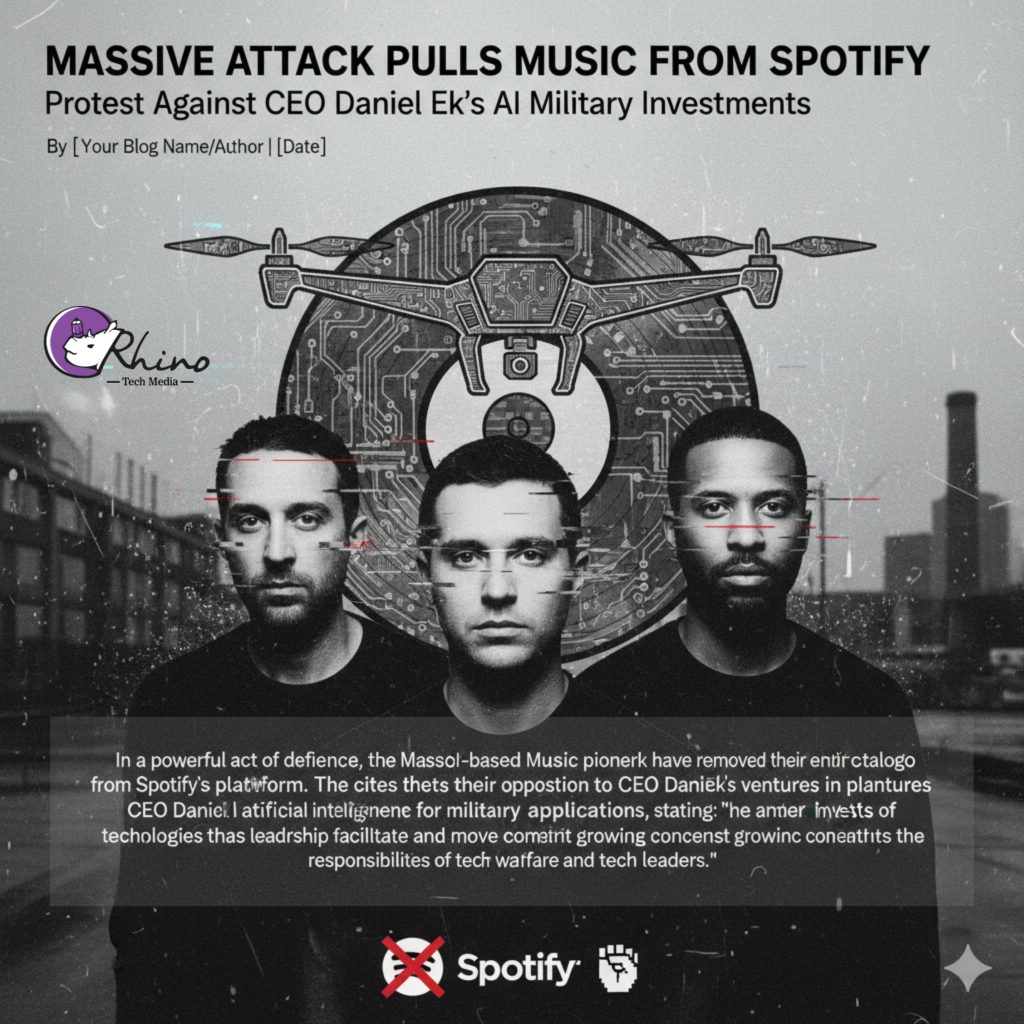Massive Attack withdraws music from Spotify: protest over Daniel Ek’s defence-AI investments
In a dramatic escalation of a growing artist-led backlash, the seminal trip-hop group Massive Attack has asked that its catalog be removed from Spotify in protest at CEO Daniel Ek’s financial links to defence-sector artificial intelligence projects. The band’s statement frames the move as an ethical stand: they argue that continuing to allow their work on the platform would indirectly support funding that helps develop lethal AI systems. This announcement is part of a wider wave of musicians and labels reconsidering their relationship with major streaming platforms because of the perceived moral implications of where streaming revenue ultimately flows.
The immediate spark for the boycott is Ek’s involvement with investment vehicles that backed Helsing (and related defence-tech efforts), a company reported to be developing AI for battlefield analysis and autonomous systems — an association many artists call unacceptable. Reporting notes that Ek has publicly defended the strategic rationale for such investments while critics highlight the stark difference between music distribution and military applications; artists counter that the line becomes blurred when platform leadership profits from, or helps finance, weapons-oriented AI. Massive Attack explicitly cited these investments when explaining their decision to pull their music.
Massive Attack’s action is notable for two reasons. First, they are a high-profile, major-label act rather than an independent artist — which complicates the logistics of removal and the likely commercial impact on the band. Second, the band aligned its Spotify withdrawal with the broader “No Music for Genocide” cultural boycott initiative, linking their stance on Ek’s investments with protest against Israeli government actions; this expands the dispute from corporate ethics around defence tech into a larger political and humanitarian context. Together, these elements increase the potential reputational and commercial stakes for both artists and the streaming service.
Spotify’s official position — as reported in coverage of the controversy — stresses operational separation between the streaming service and Ek’s personal investments, and notes that Helsing’s technology has been described by supporters as intended for defensive uses. Nevertheless, the band and allied artists argue that governance and financial ties at the top matter because they shape corporate priorities and influence how profits are reinvested. The dispute underscores the limits of the “platform neutrality” argument when platform founders and executives participate in other sectors that many users and creators find morally fraught.
Industry reaction has been mixed but increasingly vocal: a number of artists and smaller acts have already made similar moves, and commentators are debating what leverage creators realistically have against streaming giants whose economics favor scale and centralized catalogs. Some observers say these protests could pressure platforms to adopt clearer ethical investment policies or to structurally distance themselves from founders’ outside ventures; others point out that the commercial reliance of many artists on streaming royalties makes widespread withdrawal difficult to sustain. The episode is accelerating conversations about artist power, corporate responsibility, and whether new distribution models (e.g., artist-controlled channels, cooperative platforms, or direct-to-fan sales) can meaningfully alter the balance.
Looking ahead, several outcomes are plausible: (1) continued artist exits that erode the perceived comprehensiveness of major services and spur policy changes; (2) limited symbolic withdrawals that maintain pressure but leave the core streaming economy intact; or (3) legal/contractual complications if major labels, rights holders, or territories complicate unilateral catalog removals. Regardless of which of these plays out, Massive Attack’s move has crystallized a broader ethical debate at the intersection of culture, capital, and cutting-edge technology — and made it clear that artists are willing to use catalog visibility as a lever for demanding accountability from platforms and their leaders.

